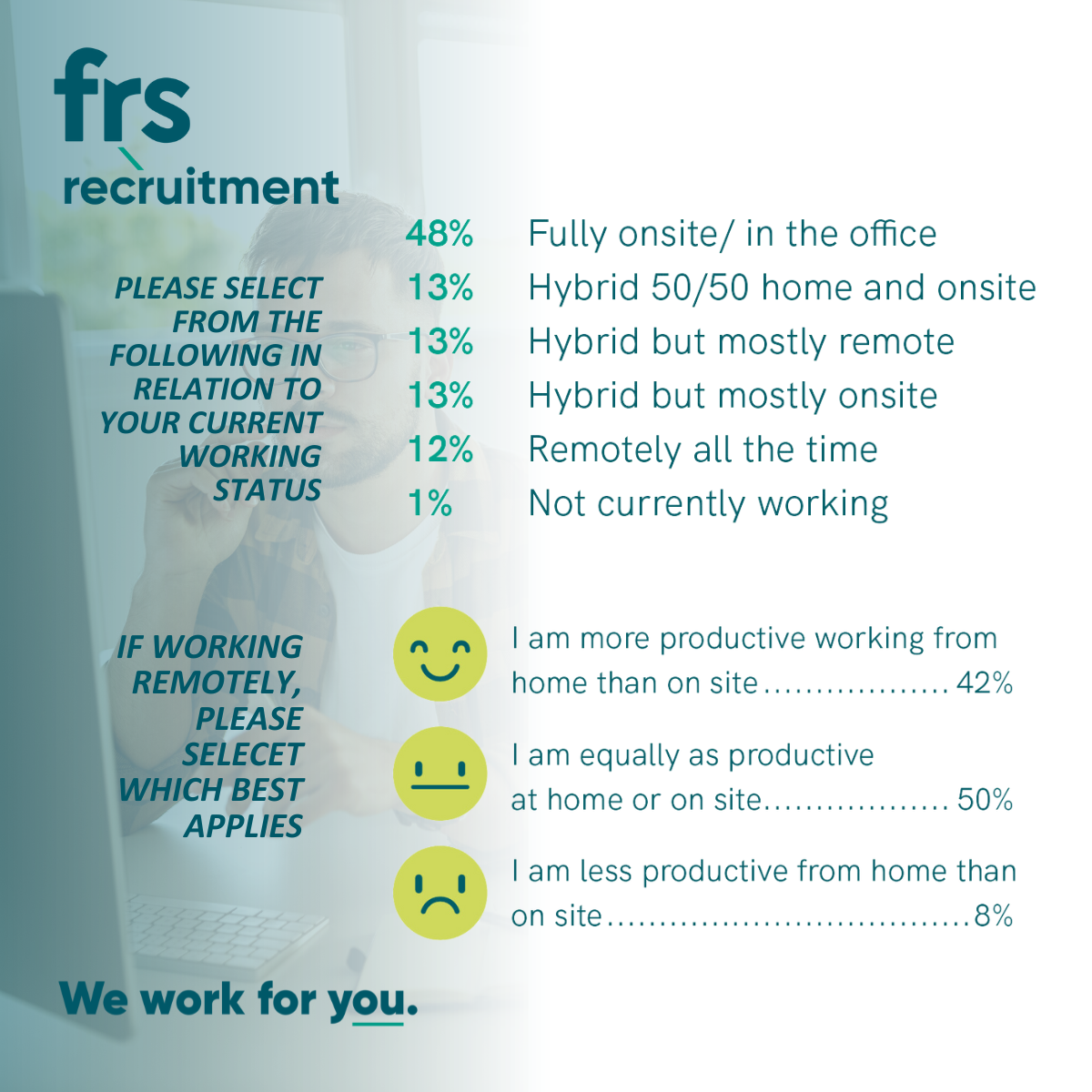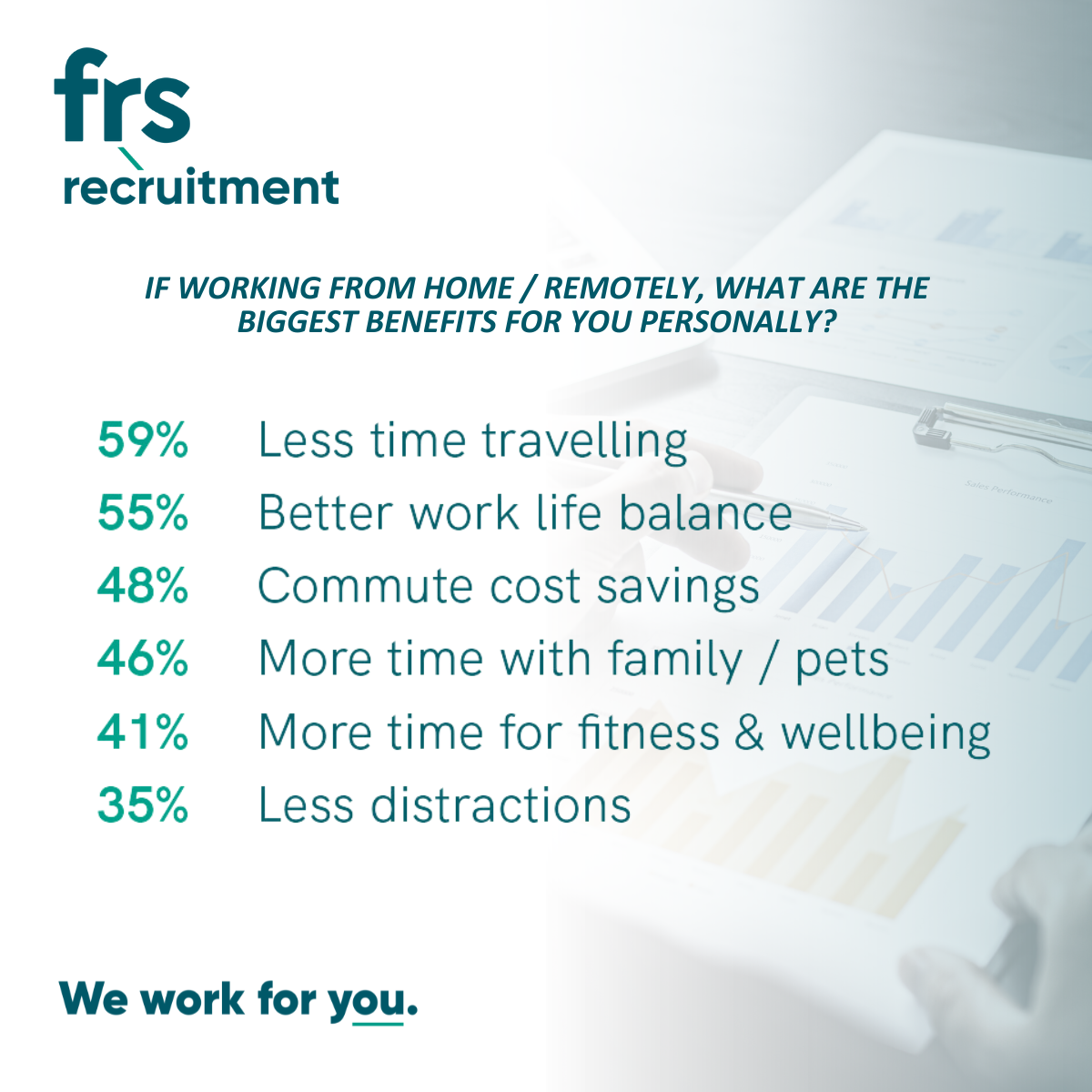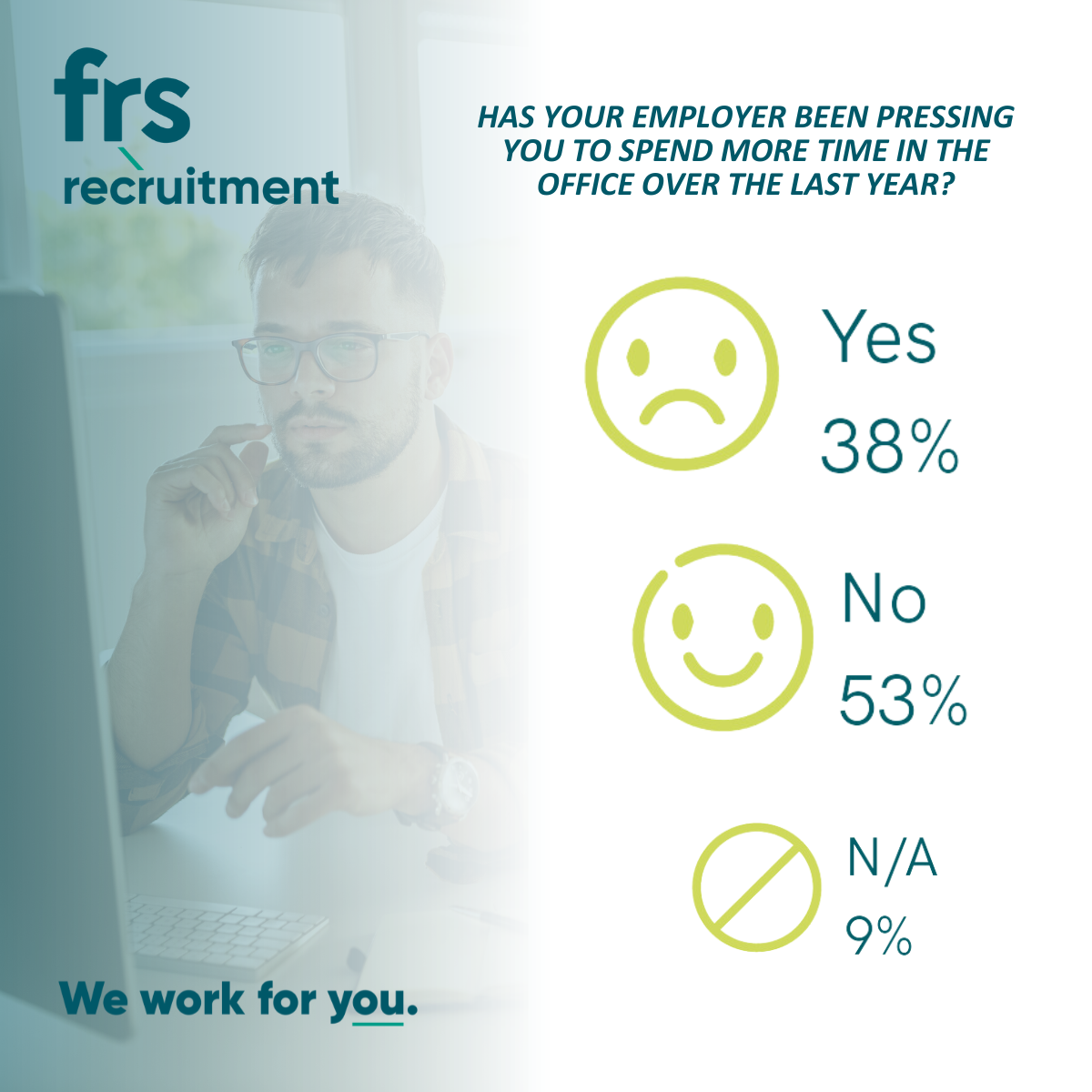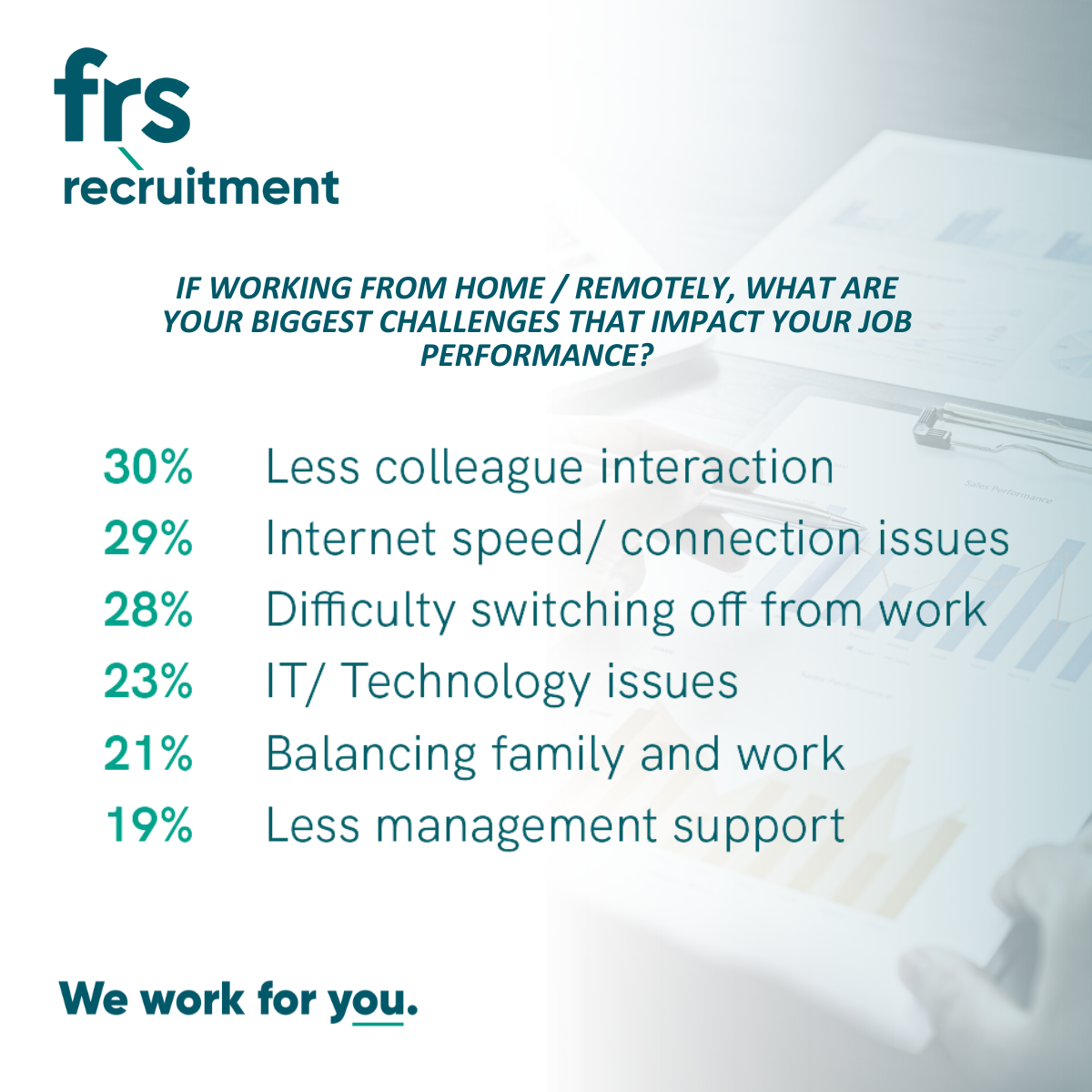Embracing the Remote Work Revolution: Balancing Productivity and Presence
For many, the shift to working from home in the wake of the pandemic brought about significant changes in work dynamics, leading to an interesting interplay of perspectives between employers and employees across Ireland. Most workers feel that remote work has either improved or maintained their productivity. Employers, too, acknowledge the positive impact of remote work, yet a growing number of them seem to be favouring a return to the traditional office environment. Using information from our 2023 FRS Recruitment Employment Insights Report, we will explore the recent trends in remote work productivity and the potential implications of employers pushing for on-site work.

It comes as no surprise that many employees have found remote work to be a boon for their productivity. When carrying out our survey, more than 9 out of 10 workers expressed that they believe they are either more productive or equally productive when working from home. This newfound flexibility has allowed employees to strike a better work-life balance, eliminate time-consuming commutes, and create personalised work environments tailored to their needs.
Employers, too, have taken notice of the positive outcomes of remote work. Over 75% of employers acknowledged that their employees are either more productive or maintain a neutral stance on productivity when working remotely. These observations, rooted in concrete experiences, reinforce the idea that remote work can indeed be a powerful tool for enhancing productivity and employee satisfaction.

While our data clearly indicates the productivity benefits of remote work, there seems to be a growing contrast between employees and employers regarding the future of work. Despite the widespread belief in the advantages of remote work, approximately 4 out of 10 employers have been urging their employees to spend more time "on site" over the past year. This figure aligns with the number of employees who reported receiving such requests from their employers.
This shift in attitude towards promoting on-site work raises questions about the future of remote work policies. The rise of hybrid work models, blending both remote and on-site elements, has gained traction as a potential compromise. However, this may require finding a delicate balance that satisfies both parties.

The reluctance of some employers to fully embrace remote work might stem from concerns about communication, collaboration, and team cohesion. While technology has facilitated seamless virtual interactions, face-to-face communication undeniably holds its own value. Striking a balance between remote work and in-person interactions is crucial to maintaining a cohesive and collaborative work environment.
Open and transparent communication between employers and employees is essential during this transitional phase. Employers should listen to the needs and preferences of their workforce and explore creative ways to adapt to the changing landscape. Hybrid work models can be designed to allow for the best of both worlds, enabling employees to enjoy the flexibility of remote work while also facilitating regular in-person interactions to foster team bonding.

The remote work revolution has had a profound impact on how we perceive work and productivity. The overwhelming majority of employees and employers have witnessed the benefits of remote work, yet some are hesitant to fully commit to it. The rise of hybrid work models offers a potential compromise, but striking the right balance is vital to ensuring sustained productivity and employee satisfaction.
At FRS Recruitment, we specialise in bridging the gap between employers and candidates, forging lasting partnerships. If you're interested in exploring some of our latest job opportunities, feel free to click here to find your next exciting career prospect!
If you’re looking to hire, or looking for a new role, reach out to any of our other specialist recruiters who will be happy to speak with you. Contact us at info@frsrecruitment.com, or add your CV to our talent pool here.
